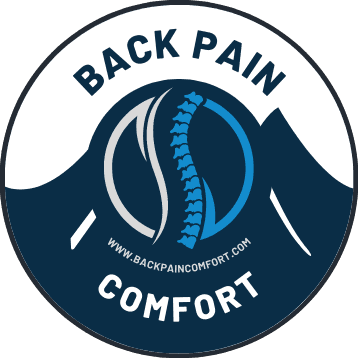
Imagine your body as a strong, well-built house. Just like a house needs solid bricks and beams to stay standing, your body needs various nutrients to remain strong and healthy. One of these vital ‘building blocks’ is Vitamin D, often called the ‘sunshine vitamin’. In this article, we will explore how Vitamin D plays a crucial role in keeping your back – an essential part of your body’s structure – strong and healthy.
Understanding Vitamin D and Its Sources
Vitamin D is a unique nutrient that our body can produce when our skin is exposed to sunlight. It’s also found in certain foods like fatty fish (such as salmon and mackerel), cheese, and egg yolks. Moreover, many foods, like milk and cereals, are fortified with Vitamin D, making it easier to include in your daily diet.
The Vital Role of Vitamin D for a Healthy Back
1. Strengthening Bones: Your back is primarily made up of bones, especially the spine. Vitamin D helps your body absorb calcium, which is essential for building strong bones. This is particularly important for children and adolescents in their growing years and for adults to maintain bone strength.
2. Muscle Function: Vitamin D isn’t just about bones; it’s crucial for muscle health too. Strong muscles support your spine, helping you maintain good posture and reducing the risk of back injuries and pain.
3. Reducing Inflammation: Sometimes, back pain is due to inflammation. Vitamin D has anti-inflammatory properties, which means it can help reduce such pain, offering a more comfortable and active lifestyle.
4. Nerve Health: The nerves in your back are like electrical wires that send messages from your brain to the rest of your body. Vitamin D plays a role in keeping these nerves healthy, ensuring they function correctly.
Identifying Vitamin D Deficiency
Lack of Vitamin D can lead to several health issues, including weak bones, muscle pain, and higher risk of chronic diseases. Signs of deficiency can be subtle, like tiredness and aches, and are often overlooked. It’s important to get your Vitamin D levels checked, especially if you spend a lot of time indoors or live in areas with limited sunlight.
How to Get Enough Vitamin D
- Sun Exposure: Spending time in the sun is the most natural way to get Vitamin D. Just 10-15 minutes of sun exposure a few times a week can help.
- Diet: Including Vitamin D-rich foods in your diet is essential. If you’re vegetarian or don’t eat fish, consider fortified foods.
- Supplements: In some cases, dietary sources and sunlight may not be enough, especially in winter months or for people with certain medical conditions. Vitamin D supplements can be a good alternative, but it’s important to consult a healthcare provider before starting any supplement.
Lifestyle Tips for a Vitamin D-Rich Routine
- Outdoor Activities: Engage in outdoor activities like walking, cycling, or playing sports. This not only exposes you to sunlight but also strengthens your back muscles.
- Balanced Diet: A diet rich in fruits, vegetables, and lean proteins, along with Vitamin D sources, ensures overall health and supports back strength.
- Regular Check-Ups: Regular health check-ups, including Vitamin D level assessments, can prevent deficiencies and related back problems.
- Ergonomics and Posture: While Vitamin D is crucial, it’s also important to maintain good posture and ergonomic practices, especially if you have a desk job.
- Exercise and Stretching: Regular exercise, including stretching and strength training, complements the benefits of Vitamin D, keeping your back muscles strong and flexible.

Addressing the Challenges
It’s important to recognize that getting enough Vitamin D can be challenging for some people. Individuals living in colder climates, those with darker skin, the elderly, and those with certain medical conditions may struggle to maintain adequate Vitamin D levels. It’s crucial for these groups to be particularly mindful of their Vitamin D intake and seek professional guidance.
Conclusion
Vitamin D is like a superhero for your back, playing an invisible yet powerful role in maintaining its health. It’s not just about strong bones; it’s about a strong, pain-free back that supports you in everything you do. Remember, a healthy back is crucial for an active and happy life, and Vitamin D is a key player in achieving that. So, go ahead and bask in the sunshine, eat a balanced diet, and consult your doctor about your Vitamin D needs. Your back will thank you for it!






